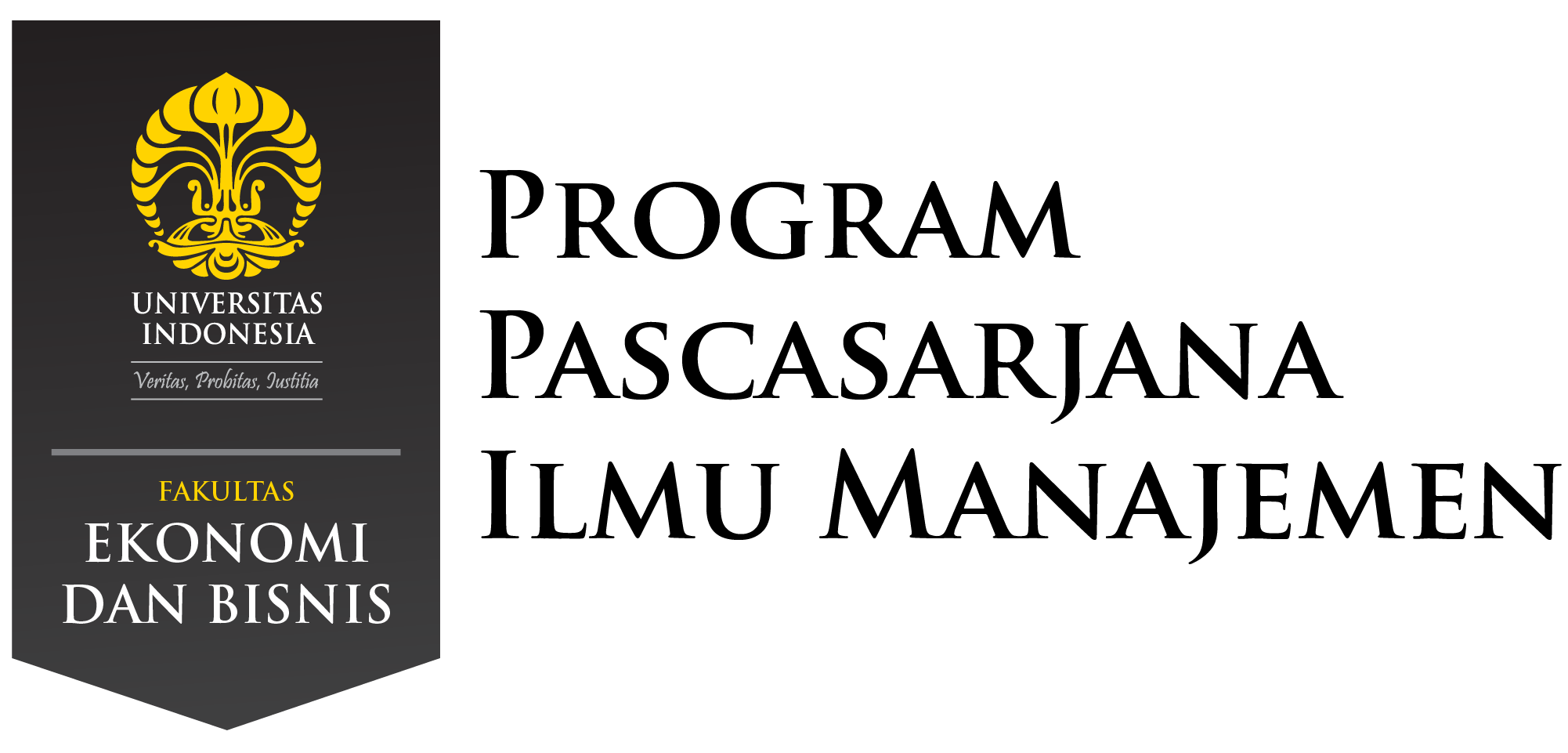Selamat Atas Pengukuhan Doktor yang ke-311 untuk Nareswari Sumarsono yang merupakan Mahasiswa S3 Stratejik angkatan 2019 di Program Pascasarjana Ilmu Manajemen FEB UI.
Promosi S3 telah dilaksanakan pada hari Senin, 5 Juni 2023 Pukul 14.00 – 16.00 WIB di Ruang 401-403, Lantai 4, Gedung Pascasarjana FEB UI, Kampus UI Depok.
Judul Disertasi : “Impact Of Firm’s Level Of Technology Innovation And Circular Business Model To Firm’s Performance: A Strategic-Based Empirical Research In The Indonesian Energy Industry.”
Ketua Sidang : Prof. Dr. Irwan Adi Ekaputra
Penguji :
1. Prof. Rofikoh Rokhim, Ph.D. (Ketua Penguji)
2. Prof. Dr. Tresna Priyana Soemardi
(Guru Besar, Departemen Teknik Mesin, Fakultas Teknik Universitas Indonesia)
3. Prof. Anwar Sanusi, Ph.D.
(Sekretaris Jenderal, Kementerian Ketenagakerjaan Republik Indonesia)
4. Dr. Setyo Hari Wijanto
6. Prof. Rhenald Kasali Ph.D. (Promotor)
7. Dr. Ir. T. Ezni Balqiah, M.E., M.H. (Ko-Promotor 2)
Riani Rachmawati, Ph.D. merupakan penguji yang tidak dapat hadir dikarenakan berhalangan.
Acara promosi berlangsung dengan baik dan lancar.
Selamat dan Sukses, Semoga dengan ilmunya bermanfaat untuk membangun bangsa Indonesia.
ABSTRAK
Along with the popularity of the environment, social and governance (ESG) concerns, the circular
economy concept nowadays has gained tremendous attraction for the academicians, policy makers,
and firms in various industries. On a firm level, this concept is implemented through a concept
called as circular business model. Various initiatives have been put in place by firms aiming to
implement this concept. This includes firms in the energy industry, which is following the energy
transition from the conventional to the renewable energy sources. Nevertheless, despite of the
importance and the omnipresent of the practice, there is still lack of empirical research within the
circular business model topic. Especially, empirical research that attempts to combine this topic
with technological innovation and ambidexterity within the energy industry, which is considered
technology-intensive and high risk industry. Using a quantitative methodology with 71 leaders of
the Indonesian energy firms as respondents, this research has succeeded to fill in the existing
research gaps through its findings, which shows that (1) there is a significant positive impact of
both firm’s level of circular business model and firm’s level of technology innovation adoption to
firm’s performance, (2) leaders innovativeness is key as it has a significant positive impact to
firm’s level of circular business model, firm’s level of technology innovation adoption as well as
directly to firm’s performance, and (3) whilst perceived availability of technology has a significant
positive impact to firms’ performance, but only through firm’s level of technology innovation
adoption. Whereas for the moderating impact of ambidexterity, no significant positive result is
seen and longitudinal research is suggested for further study. For academicians, this research is
expected to provide empirical, methodological, and contextual contribution to the existing strategic
management literatures, especially within the circular business model and technology innovation
topic. For practitioners, this may serve as valuable insights for improvements and/or innovations
in terms of business model, technology adoption, and strategy. Also, this research is expected to
be able to support the energy transition in Indonesia, where both the conventional and the
renewable energy businesses are expected to go hand-in-hand together on this.
Key words: Circular business model, technology innovation, ambidexterity, available
technology, leader’s innovativeness, performance.

